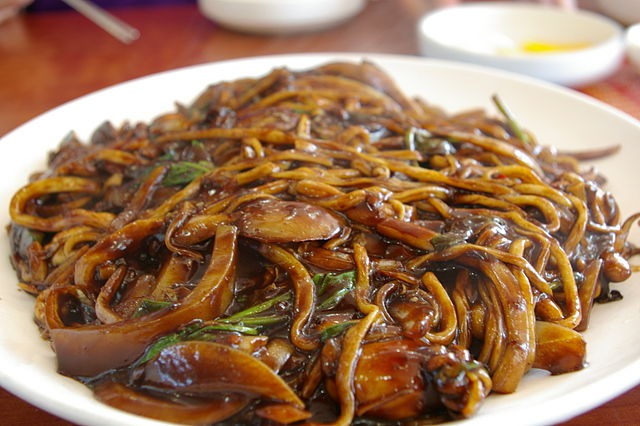Black Day

There are a lot of so-called Black Days out there. “Black Monday” refers to a few dozen events, many of which are associated with stock market crashes, and the big Wall Street market crash of 1929 is “Black Tuesday.” “Black Wednesday” refers to a British currency crisis from September of 1992. Continuing with the pattern of financial markets having bad days brings us to “Black Thursday,” which has been used to refer to bad events leading to the Panic of 1873; to a prelude crash to Black Tuesday; and to similar events worldwide. Breaking the pattern is “Black Friday,” the day after Thanksgiving in the United States. It is described as such because of the spike in retail demand and the corresponding revenues derived by retailers — their books are “in the black.” (Perhaps comically, the Wikipedia entry for Black Friday notes that the “celebration” which occurs that day is, in a word, “shopping.”)
In South Korea, though, “Black Day” means something else. Something involving love and noodles — a lot of the latter, and not so much of the former.
February 14th is Valentine’s Day. But, as discussed in these pages previously, Japan and (in this case) South Korea have a different tradition — on that day, women give gifts to men. Men reciprocate a month later on “White Day,” March 14th, typically with a gift of (white) chocolate. But what happens if you don’t have anyone you are romantically involved with?
Enter “Black Day,” celebrated — to use the term loosely — on April 14th. The custom started developing in the early 1990s. Per Forbes, it is a day of mourning for “those who have not given or received a present [on White or Valentine’s Day].” Single people, typically in their 20s and 30s, don black outfits and gather at restaurants. There, they dine on something called “jajangmyeon” (seen above), a cheap noodle dish, with pork, seafood, and vegetables, all slathered in a black bean sauce. The dish is difficult to eat without making a mess of oneself, but that’s probably okay for a Black Day participant. As one unattached diner told Reuters, “I had a miserable time on Valentine’s Day, felt even lonelier on White Day and now I’m crying over a bowl of black noodles.”
But for those seeking love — and, perhaps opportunistically, those looking to make a buck off that desire — Black Day can have its upside. Again, per Reuters, “Black Day events have snowballed, with a major matchmaking service this year [2008] providing an evening of speed dating where the dish of choice is sushi blackened by squid ink.”
Bonus fact: Even in pitch darkness, we don’t see the color black. We see a color called “eigengrau,” German for “intrinsic gray,” which is a very dark gray color (as you may have just figured out). Our optic nerves still send signals to our brains, even when there is no light, and the brain translates this into a deep gray.
From the Archives: Fandemonium: Why you shouldn’t bring an electric fan to a South Korean Black Day dinner.
Related: Want to make some jajangmyeon? These noodles are probably a good starting point.
